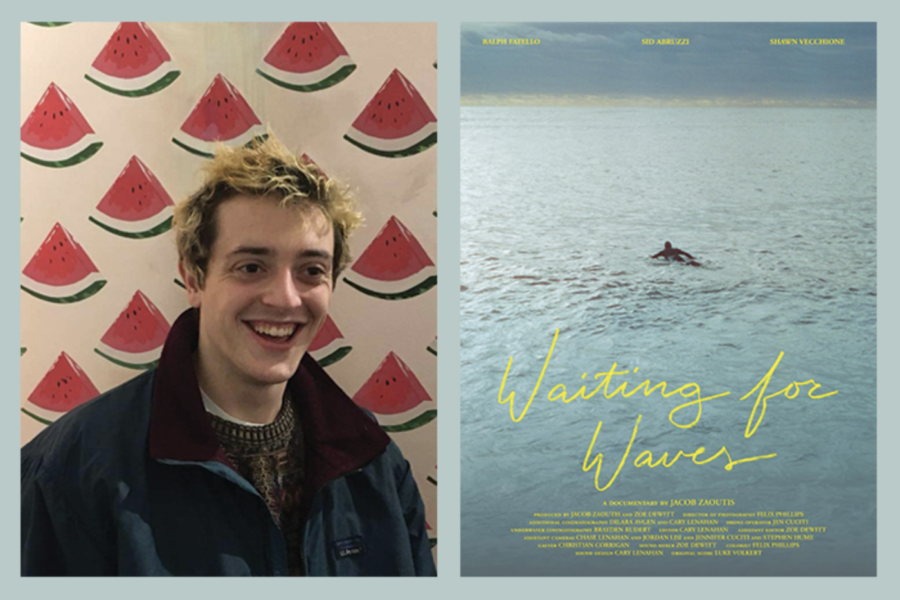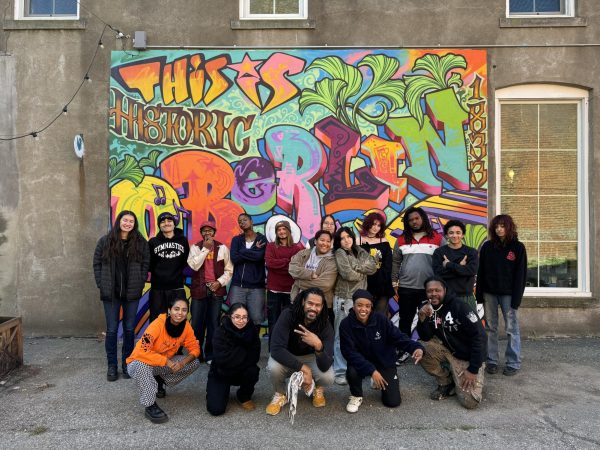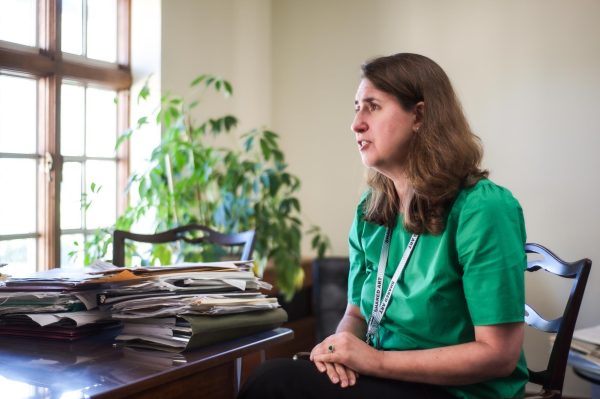Luke Volkert, Waiting for Waves Composer
Courtesy of Luke Volkert - Luke Volkert
College fourth-year Luke Volkert, composer for Waiting for Waves.
Over the last year, many of us picked up new skills or hobbies. For College fourth-year Luke Volkert, his practice writing music for film during the pandemic quickly grew into more than just a way to kill time. After scoring a three-minute short film, Volkert collaborated with Boston University student Jake Zaoutis on a new project: writing the score for Waiting for Waves, a documentary about veteran surfers in New England. The film won first place at Boston University’s Redstone Film Festival, as well as the awards for audience choice and best cinematography. The trailer, featuring music by Volkert, is available to view here.
This interview has been edited for length and clarity.
How did you get involved in the production of Waiting for Waves?
Jake Zaoutis, who directed the film, is one of my friends from high school. Over quarantine, I was starting to get into film scoring. I did a film for a competition that I scored, and I posted it on Facebook and he saw it. He’s a film major at BU. He saw it and reached out to me and was like, “Hey, I really liked this film that you scored, I’m going to be working on this documentary for my final project, and I was wondering if you would write music for it.” I was like, “Yeah, that sounds awesome.” He told me about that over the summer, but then it didn’t really get started until the end of last semester.
How would you say the process of scoring your first film was different from scoring your second film? Did you learn anything?
They were really different processes because the first one was completely silent, and it was a three-minute film, so the music was running throughout and it was all sort of flowing together naturally. This one is a documentary, and because of that, it’s mostly dialogue driving the story. So in writing the music, I had to be a lot more aware of the space that it was taking up and of leaving room for the dialogue — which is the most important part.
Because it was a lot longer, there were also different concrete themes and personas. I had to break it down into different sections. And so that’s how I started. I would talk to the director [Zaoutis] before there was any footage, and he would tell me about the different characters and what they were going through, and about the overall vibe of the film. I would write things based on that and send them back and forth with him.
I basically wrote 20 different songs that were solely based on what he had told me. It wasn’t until really late in the process that I had to line those up to the actual film.
You mentioned matching the vibe of the film, which is a documentary about surfing. Did any of that play into the music you wrote?
Definitely. That was the first thing that I talked about with [Zaoutis] was that it’s about surfing, which I feel has very specific musical stylistic connotations, with surf guitar and all these specific fun, exciting things. He wanted to incorporate some of that, but while the film is about surfing, it’s about surfing in New England with old men. So it’s not quite the fun, happy, exciting, surf rock that you would expect.
I think that the film is a little sad, or that’s definitely the vibe I get, because it’s these guys who are super passionate about it but also aging and breaking their hips and all this stuff, so it had to be a lot more mellow. I talked with Jake a lot and ended up writing a lot of music that was more mellow and a little bit more toned back and ambient, but also including the slide guitar and the super reverb-y guitar that is part of the surf sound, and finding a way to mix those two things together.
What was it like working on a project that was taking place almost entirely at Boston University, another school?
It was definitely tricky at first because I had no visuals to go off of. There’s only so much you can convey over a Zoom meeting, unfortunately. Toward the end of the process we started having more regular calls, and calls where I could pull up the session that I was working on and be like, “Okay, here’s what I’m thinking, but I can change this.” It was manageable, but it would have been a lot easier if we could be in the same room together. But you know, such is life.
Is there anything from the experience of working with BU that you feel would be cool to bring back to Oberlin?
I don’t know how much of this Oberlin wants to hear, but one thing that really struck me with the festival and all the awards was just like, it must be nice to go to a school that has a lot of money. I’ve taken some Cinema Studies classes here and I know a lot of Cinema Studies majors, and I know we have access to certain equipment. Obviously, it’s a great opportunity and we’re really lucky that we have those things, but it was also funny to see just the difference in video quality when you’re provided these industry-level cameras and all this other equipment. For the awards ceremony, you got free professional-level cameras for winning things, or certain things like that, which I feel like would never really happen here. It’s not in our control necessarily, but yeah, that was one thing.
I think it’s normal to think about the ways that the resources of a big school like BU are different than those of smaller schools like Oberlin.
They had so many more resources and because he was going to a film school, they all got time off from class. They got paid to drive out to Connecticut. I think having those opportunities available to them is definitely what made the film how it is. I don’t think they would have been able to make it if they didn’t have all of those resources.








